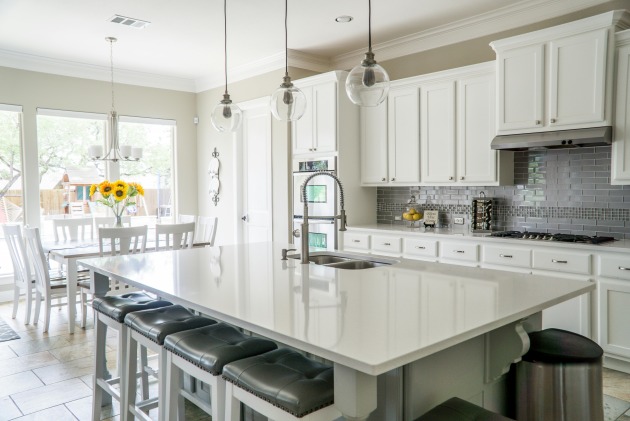research / Segmentation research
Market Segmentation for Construction, Home Improvement & Installation
Understanding your target groups and being able to use a good segmentation & persona's can greatly increase marketing and sales effectiveness. USP frequently conducts segmentation studies for key stakeholders in the construction, installation and home improvement markets. Due to our 30+ years of experience in these segments, we can provide more then just data but insights and advice to build on.


Tailor made
Our research is always customized to fit your needs and help you answer your business objective trough insights and advice.
Leading industry experts
Leverage our 30+ years of expertise in the construction, installation and home improvement markets.
Insights and advice
Our mission is to provide insights and advice, not just data.

When you might need this?
Scenario 1
Differentiating DIY vs. Professional Painters
A paint manufacturer with a broad product range struggles to connect effectively with both DIY enthusiasts and professional painters. They commission a segmentation study to develop targeted messaging, promotional activities, and product tiers for each audience.
-
What key differences in buying behavior and product expectations exist between DIYers and pros?
-
Which psychographic factors (budget-conscious vs. premium quality seekers) influence segment choice?
-
How do factors like color variety, ease of application, or durability rate in importance for each group?
-
What pricing strategies best align with different painter segments?
-
Which communication channels—online tutorials, in-store demos, or trade magazines—effectively reach each segment?

Scenario 2
Mapping Installer Profiles for a Plumbing Solutions Provider
A plumbing solutions company notices that their products resonate differently among small-scale residential plumbers, large commercial contractors, and specialized maintenance professionals. To optimize marketing spend and product development, they seek a deep dive into each installer segment.
-
How do we categorize plumbers based on project type, company size, and technological adoption?
-
Which pain points (installation complexity, parts availability, cost) differ significantly between segments?
-
What motivations or barriers drive loyalty or switching behavior across various installer profiles?
-
How can we tailor product features and training programs to address segment-specific needs?
-
Which messaging angles (e.g., reliability, sustainability, innovative design) resonate most with each segment?


Scenario 3
Targeting Niche Customer Segments for High-End Kitchen Products
A kitchen fixtures and appliances brand wants to refine its approach to a range of niche buyer personas—from luxury homeowners to design-focused architects. By undertaking a segmentation study, they aim to personalize their offerings and enhance market share in premium segments.
-
How do upscale consumers differ from mid-range buyers in terms of product expectations and design preferences?
-
Which features—smart technology, sustainable materials, custom finishes—command the highest value perception?
-
What attitudes do design-focused architects hold regarding brand partnerships and co-creation opportunities?
-
How large are these niche segments, and which international markets offer the greatest growth potential?
-
What tailored marketing strategies (showroom experiences, virtual design tools, influencer collaborations) best attract these high-end segments?



Research topics
Every segmentation research USP conducts is unique. However, there are some elements that are frequently part of our segmentation studies.
Demographic Segmentation
Dividing the market based on demographic factors such as age, gender, income, education, occupation, marital status, or household size. These characteristics help in understanding the basic traits of different stakeholder groups.
Psychographic Segmentation
Grouping customers based on their lifestyles, values, beliefs, personality traits, interests, hobbies, and attitudes. This segmentation delves deeper into understanding stakeholder behaviors and motivations.
Behavioral Segmentation
Segmenting is based on actual stakeholder behaviors, such as usage rate, loyalty, purchase occasions, buying patterns, brand interactions, digitalization, openness to sustainability, and responses to marketing stimuli. This helps in identifying distinct behavior-based segments.
Needs-Based Segmentation
Identifying segments based on specific needs, problems, or challenges that stakeholders seek to address. This approach focuses on understanding and fulfilling particular needs within different customer groups.
Value-Based Segmentation
Segmentation is based on the perceived value stakeholders derive from the product or service. This could include segments that prioritize price, quality, convenience, or other value propositions.
Segmentation Validation and Profiling
Once segments are identified, validation and profiling involve analyzing and describing each segment in detail, including their characteristics, needs, behaviors, and preferences. The next step is to validate this for the total population.
Who benefits?
C-level professionals
Business/product development professionals
Marketing and market intelligence professionals
FAQ
-
Can USP develop persona’s based on a segmentation research?
Yes, as a specialized market research agency specializing in the construction, installation, and home improvement market segments, we can both conduct the segmentation study and derive persona’s from the outcomes, in cooperation with the principle.
-
What type of methodology does USP use when it comes to customer journey researches?
This depends, of course, on your wishes and the feasibility of the fieldwork. In many cases, B2B target groups in the construction and installation market segments don’t respond well to online research. Furthermore, the availability of online panels for target groups like contractors, installers, painters, and so on is very low and typically of low quality. This is why USP frequently runs B2B customer journey studies via phone to ensure representativeness and the highest quality of results. This is the case for both qualitative and quantitative studies. For B2C target groups, online research is a much more viable option. Besides the fieldwork, segmentation studies typically also include desk research and census research.
-
Can USP run a segmentation/persona’s research in multiple countries at the same time?
Yes, one of the added values of working with USP, besides our three decades of experience in the construction, installation, and home improvement segments, is that we can run our research projects in multiple countries simultaneously, utilizing the same methodology and questionnaire (of course in native languages).

Contact us
Send us a message
Please contact our office or fill in the contact form and our specialists will contact you.
PHONE
+31 10 2066900ADDRESS
Max Euwelaan 51
3062 MA Rotterdam






















